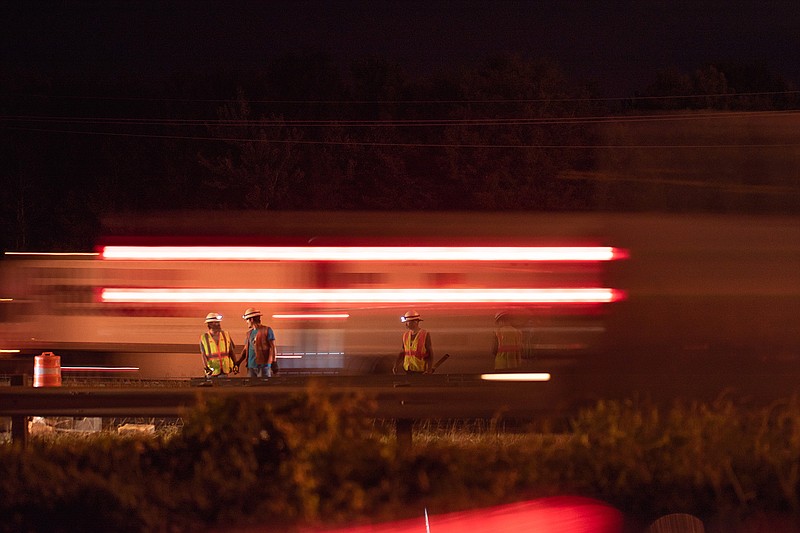TEXARKANA, Texas - Interstate 30 will be 50% bigger to handle higher traffic volumes - both real and projected when - when this latest round of road building is complete.
In the spring of this year, Texas Department of Transportation announced a plan to widen six miles of Interstate 30 here from four lanes to six. The cost? Almost $90 million.
The project will widen 6.8 miles of I-30 - between just west of FM 98 to the Arkansas state line - from four lanes to six lanes. Longview Bridge and Road of Longview, Texas, won the $88.9 million contract, which is scheduled for completion in July 2024.
Much of the work currently is being done at night, so it's not one of the more obvious improvements underway, but it's a meaningful one. for Texarkana. Studies have shown highway traffic both east and west and north and south is quickly outgrowing the roadway's current capacity.
The new lanes will be 12 feet wide, and the project will include 10-foot inside and outside shoulders, as well as a continuous concrete median barrier separating eastbound and westbound traffic. The existing asphalt pavement is being replaced with continuously reinforced concrete pavement. Also,
This section of I-30 was first constructed about 60 years ago.
Also included in this project is the construction of a new main-lane bridge at the Kansas City Southern Railroad interchange.
Work began in August and should take about four years to complete.
TxDOT has created a website to inform the public about the project. To view it, go to TxDOT.gov and enter the keywords "I-30 Widening Texarkana" in the search field.
The first phase of the project will continue into late 2021. First, in work done mostly at night, workers will repair and resurface outside shoulders. Then traffic will be redirected to two 12-foot travel lanes in either direction with 2-foot shoulders, creating a work area between that will be protected by temporary barriers. Concrete pavement will be constructed in the median, and detour pavement will be constructed for the next phases of the project.

